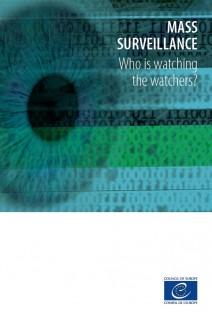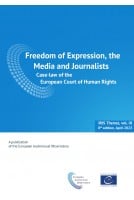



"They know where you got on the bus, where you went to work, where you slept, and what other cell phones slept with you." Edward Snowden
The disclosures by Edward Snowden since June 2013 revealing mass surveillance and large-scale intrusion practices have provided compelling evidence of the existence of far-reaching, technologically advanced surveillance systems. Put in place by United States intelligence services and their partners in certain Council of Europe member states, these systems are aimed at collecting, storing and analysing communication data, including content, location and other metadata, on a massive scale. In several countries, a massive “surveillance-industrial complex” has evolved, which risks escaping democratic control and accountability and threatens the free and open character of our societies.
The surveillance practices disclosed endanger fundamental human rights, including the rights to privacy, freedom of information and expression, and the rights to a fair trial and freedom of religion. Given the threat such surveillance techniques pose, how can states uphold these fundamental rights and ensure the protection of privacy and Internet safety in the digital age?
This book presents, in its first part, the report of the Parliamentary Assembly of the Council of Europe and, in its second part, the legal expertise of the European Commission for Democracy through Law (the Venice Commission).
Contents
PART 1 – MASS SURVEILLANCE – REPORT OF THE PARLIAMENTARY ASSEMBLY
I. Summary
II. Adopted texts
III. Explanatory memorandum
PART 2 – THE DEMOCRATIC OVERSIGHT OF SIGNALS INTELLIGENCE AGENCIES
Executive summary
I. Introduction
II. The scope of the present study – definitions
III. Is there a need for (improved) democratic control?
IV. Jurisdiction
V. Accountability – constitutional and organisational contexts
VI. Accountability for security activities and the case law of the European Court of Human Rights
VII. Internal and governmental controls as part of overall accountability systems
VIII. Parliamentary accountability
IX. Judicial review and authorisation
X. Accountability to expert bodies
XI. Complaints mechanisms
XII. Concluding remarks
GLOSSARY













"They know where you got on the bus, where you went to work, where you slept, and what other cell phones slept with you." Edward Snowden
The disclosures by Edward Snowden since June 2013 revealing mass surveillance and large-scale intrusion practices have provided compelling evidence of the existence of far-reaching, technologically advanced surveillance systems. Put in place by United States intelligence services and their partners in certain Council of Europe member states, these systems are aimed at collecting, storing and analysing communication data, including content, location and other metadata, on a massive scale. In several countries, a massive “surveillance-industrial complex” has evolved, which risks escaping democratic control and accountability and threatens the free and open character of our societies.
The surveillance practices disclosed endanger fundamental human rights, including the rights to privacy, freedom of information and expression, and the rights to a fair trial and freedom of religion. Given the threat such surveillance techniques pose, how can states uphold these fundamental rights and ensure the protection of privacy and Internet safety in the digital age?
This book presents, in its first part, the report of the Parliamentary Assembly of the Council of Europe and, in its second part, the legal expertise of the European Commission for Democracy through Law (the Venice Commission).
Please note that in accordance with our terms & conditions, PDF/epubs may only be purchased by private individuals.
